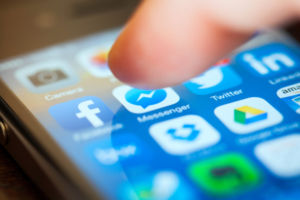At the beginning of this year, Facebook resolved to make the phone number obsolete by the end of 2016. Now, the company is enacting this promise by forcing all of its mobile users to use and download its “Messenger” app, a communication function independent of the site itself.

As more people around the world find ready access to free internet, Facebook has been leading the charge on trying to promote new ways for internet users on mobile devices to communicate. As long as there is free wifi, anyone can use free messenger apps like Facebook Messenger, WhatsApp, or even Snapchat, and send video, text, and picture messages at no cost.
Of course, there’s catch. Free messaging apps present huge opportunities for their hosts to rent out advertising spots to marketers. With the advent of chatbots, companies can now set up their own automated messaging accounts that will interact with people on Messenger, conversing with them in the voice of the company and attempting to sell the company’s products.
Facebook’s decision to move all mobile messaging capabilities over to its app mark the inevitability of the general populace’s migration to messaging apps. As more people than ever communicate via these apps rather than SMS text messaging, it will be hard for the average Facebook user to avoid downloading the app and using it. And, while the average Facebook user may not want to experience a barrage of personalized advertisements, Messenger ensures that he will.
Advertisers need to take note of this trend and find new ways to communicate with their target audiences on messenger apps.


